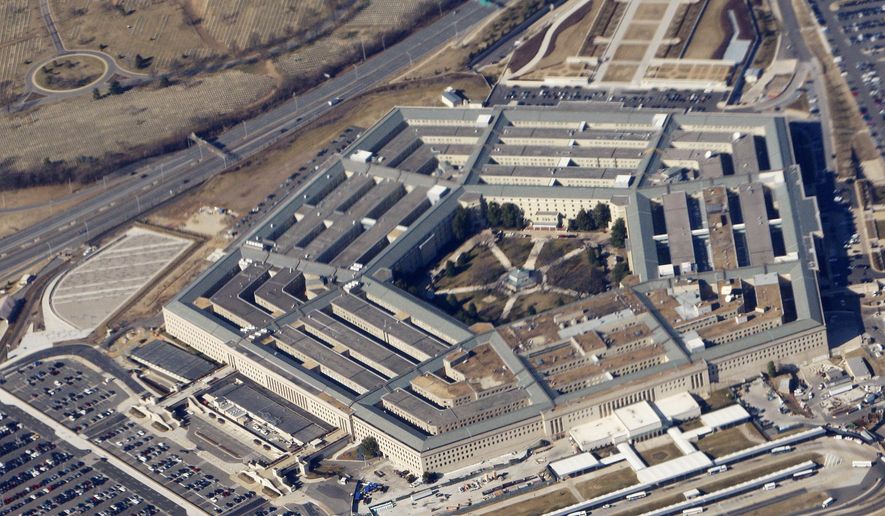Current fiscal instabilities within U.S. defense spending, exacerbated by the Trump administration’s call for a five percent decrease in the Pentagon’s spending blueprint for the coming fiscal year, will leave Washington unable to confront near-peer competitors like Russia and China in any future conflict.
That conclusion was one of several outlined by members of the National Defense Strategy Commission, a congressionally-mandated bipartisan panel consisting of a dozen current and former high ranking defense and intelligence officials, former top U.S. diplomats and lawmakers. Members include former Pentagon policy chief Eric Edelman, retired Chief of Naval Operations Adm. Gary Roughead and former acting CIA Director Mike Morell.
The panel, who released their final report on the state of U.S. defense posture Wednesday, are expected to brief their findings to Defense Secretary James Mattis and the heads of the House and Senate defense oversight panels in the coming weeks.
Those findings paint a dire picture of United States national security apparatus hamstrung by financial shortfalls and susceptible to military aggression from global adversaries, particularly those in Moscow and Beijing.
“This budget instability caused by … unpredictable and insufficient overall funding levels has taken a significant toll on U.S. military readiness and personnel,” said commission member and Arizona Republican Sen. John Kyl said. “At the same time, our potential adversaries like Russia and China face no similar fiscal constraints,” he added in a statement accompanying the report’s release.
A main pillar of the Pentagon’s National Defense Strategy or NDS is to shift away from the terrorism-centric defense posture of the post 9/11 era toward one of conventional defense, focused on aggressions by nation states. Under the proposed defense budget cuts by the Trump White House, the U.S. will not be able to underwrite the central tenets of the NDS, related to potential conflict with Russia or China.
“For the first time since the end of the Cold War, the United States is at risk of losing a future war against peer or near-peer competitors, mainly due to budget instability and insufficient funding provided by Congress,” wrote Sen. Kyl, who replaced fellow Arizona Sen. John McCain on the panel after his death in August.
Oklahoma Republican Sen. Jim Inhofe, who will assume chairmanship of the Senate Armed Services Committee from Sen. McCain, echoed Sen. Kyl’s concerns over the commission’s findings.
“To address our present national security crisis and restore America’s eroding military advantage, we must fully resource and implement the National Defense Strategy,” Sen. Inhofe said in a statement Wednesday. “If we fail to do so, the cost will be measured in American lives lost fighting wars that might have been avoided and may very well be lost,” he added.
The crux of the commissions’ findings rests on the Trump White House’s decision to propose a reduction to defense spending, beginning in fiscal year 2020.
In 2017, both Dunford and Mattis called for a three to five percent increase in defense spending annually, over the five-year Pentagon budget forecast — known as the Future Years Defense Plan — to meet the operational and strategic requirements for future, near-peer conflict with Russia and China, the report states.
As a result, Pentagon number crunchers had been constructing a budget blueprint for fiscal year 2020 of $733 billion, to reflect that three to five percent increase.
But department officials are building a second budget proposal of $700 billion, prompted by the White House’s demand for a 5 percent reduction across all federal agencies next fiscal year.
Mick Mulvaney, head of the Office of Management and Budget, formally ordered the Pentagon in October to work in Mr. Trump’s initiative into planning for fiscal year 2020 spending blueprint — which is expected to be finalized in December.
“We’ve been going through this very disciplined process for the whole year to build a budget that’s $733 billion, and then last week we’re told to build a $700 billion budget. We are not going to reverse course on all that planning, but we will build two budgets,” Deputy Secretary of Defense Patrick Shanahan said, shortly after orders for the reductions came down from the White House.
The move has incensed GOP defense hawks on Capitol Hill, who have doubled down on efforts to increase defense spending, based on Mr. Trump’s heavy pro-defense rhetoric. It has also drawn serious concern from the bipartisan defense commission.
“We are deeply troubled by the lack of such growth in the Department’s five-year budget plans,” commission members wrote, noting if the current fiscal path for the Pentagon is not corrected in subsequent defense budgets, “the Department may find itself able to prosecute just one conflict successfully, without the ability to simultaneously deter other adversaries.”
• Carlo Muñoz can be reached at cmunoz@washingtontimes.com.




Please read our comment policy before commenting.